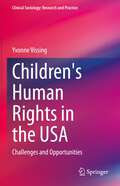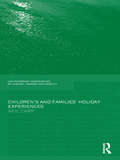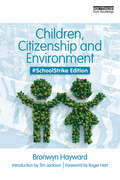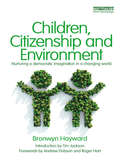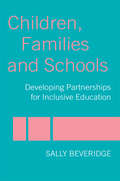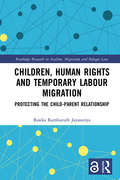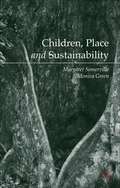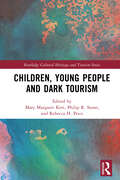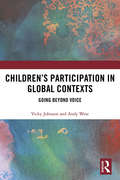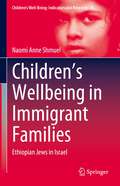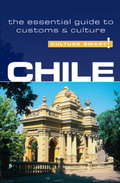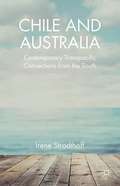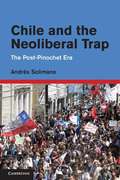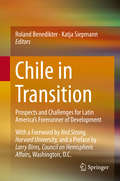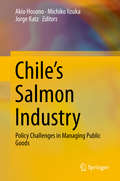- Table View
- List View
Children's Hospital Boston (A)
by Scott A. Snook Jeffrey C. ConnorFive year old Matty died at Children's Hospital Boston as a result of elective neurosurgery to "cure" his epilepsy. The organizational system, not the surgery, had failed. During post-operative recovery, he experienced a prolonged seizure that resulted in his death. Confused leadership, organizational differentiation, structurally induced silence, and organizational mis-alignment contributed to the death. How could this happen in such a world class medical facility?
Children's Hospital and Clinics (A)
by Amy C. Edmondson Michael A. Roberto Anita TuckerDescribes the major phases of an initiative designed to transform the organization and enhance patient safety. Raises interesting questions about how to encourage candid discussion about failures while continuing to hold people accountable for their performance.
Children's Hospital and Clinics (B)
by Amy C. Edmondson Kathryn S. Roloff Ingrid M. NembhardExplores the numerous initiatives Children's Hospital and Clinics has undertaken to improve patient safety since the late 1990s--from the perspective of 2007. The case thus updates the A case by revisiting the hospital to find out what happened as a result of the ambitious change program launched over eight years earlier. It elaborates the ways in which Children's COO Julie Morath seeks to continue to improve hospital operations by involving nurses, physicians and even patients' families in an ongoing organizational learning process. The 2-case series is particularly distinctive in tracking an organizational change initiative for almost a decade and, as such, uncovers and promotes discussion of the important, granular details of change leadership in a messy, knowledge-based organization.
Children's Human Rights in the USA: Challenges and Opportunities (Clinical Sociology: Research and Practice)
by Yvonne VissingThis book critically examines why a human rights framework would improve the wellbeing and status of young people. It explores children’s rights to provision, protection, and participation from human rights and clinical sociological perspectives, and from historical to contemporary events. It discusses how different ideologies have shaped the way we view children and their place in society, and how, despite the rhetoric of children's protection, people under 18 years of age experience more poverty, violence, and oppression than other group in society. The book points to the fact that the USA is the only member of the United Nations not to ratify a children’s human rights treaty; and the impact of this decision finds US children less healthy and less safe than children in other developed countries. It shows how a rights-respecting framework could be created to improve the lives of our youngest citizens – and the future of democracy. Authored by a renowned clinical sociologist and international human rights scholar, this book is of interest to researchers, students, social workers and policymakers working in the area of children's wellbeing and human rights.
Children's Investment Fund, 2005
by Randolph B. Cohen Joshua B. SandbulteTCI, The Children's Investment Fund, is a London-based hedge fund. The firm donates a significant fraction of the fees it earns to a charitable foundation. In 2005, TCI took a large stake in Deutsche Borse, the stock exchange in Frankfurt. Its battle with management disrupted a proposed merger and caused the CEO to exit. Addresses a variety of issues in the investments business, including: How do stock pickers create value? What are the benefits of long-term vs. short-term orientation, buying vs. selling short, and a generalist vs. a specialist approach? What is the role of shareholder activism in corporate governance? Do the investment business and charitable giving mix?
Children's and Families' Holiday Experience (Contemporary Geographies of Leisure, Tourism and Mobility)
by Neil CarrChildren’s and Families’ Holiday Experiences is based on the recognition of the active social role of children in shaping the nature of their holiday experiences and those of their parents and other adults. The volume provides significant insights into the holiday desires, expectations, and experiences of children and their families that offer the potential for the tourism industry to plan, develop, and market products that provide a higher quality of service to these populations. This book traces the modern history of the demand for and provision of holidays for children and families. As part of this it examines the nature of the holiday desires of parents and children and the roles society and the tourism industry play in influencing these. It provides an analysis of the changing nature of the holiday desires and experiences of children as they evolve through different life stages and the influence this has on the shape of family holidays. Given increasing concerns about child safety and education, this book examines both issues within the tourism experience. Finally, the book analyzes how the tourism industry caters to the needs of children and families and offers insights into how this could be improved in the future. This thorough investigation will be of interest to students, researchers and academics in the areas of Tourism, Geography and Child and Family Studies as well as the tourism Industry.
Children, Citizenship and Environment: #SchoolStrike Edition
by Bronwyn HaywardIn this significantly revised second edition of Bronwyn Hayward’s acclaimed book Children Citizenship and Environment, she examines how students, with teachers, parents, and other activists, can learn to take effective action to confront the complex drivers of the current climate crisis including: economic and social injustice, colonialism and racism. The global school strikes demand adults, governments, and businesses take far-reaching action in response to our climate crisis. The school strikes also remind us why this important youthful activism urgently needs the support of all generations. The #SchoolStrike edition of Children Citizenship and Environment includes all new contributions by youth, indigenous and disability activists, researchers and educators: Raven Cretney, Mehedi Hasan, Sylvia Nissen, Jocelyn Papprill, Kate Prendergast, Kera Sherwood O’ Regan, Mia Sutherland, Amanda Thomas, Sara Tolbert, Sarah Thomson, Josiah Tualamali'i, and Amelia Woods. As controversial, yet ultimately hopeful, as it was when first published, Bronwyn Hayward develops her ‘SEEDS’ model of ‘strong ecological citizenship’ for a school strike generation. The SEEDS of citizenship education encourage students to develop skills for; Social agency, Environmental education, Embedded justice, Decentred deliberation and Self-transcendence. This approach to citizenship supports young citizens’ democratic imagination and develops their ‘handprint’ for social justice. This ground-breaking book will be of interest to a wide audience, in particular teachers and professionals who work in Environmental Citizenship Education, as well as students and community activists with an interest in environmental change, democracy and intergenerational justice.
Children, Citizenship and Environment: Nurturing a Democratic Imagination in a Changing World
by Bronwyn HaywardChildren growing up today are confronted by four difficult and intersecting challenges: dangerous environmental change, weakening democracies, growing social inequality, and a global economy marked by unprecedented youth unemployment and unsustainable resource extraction. Yet on streets everywhere, there is also a strong, youthful energy for change. This book sets out an inspiring new agenda for citizenship and environmental education which reflects the responsibility and opportunities facing educators, researchers, parents and community groups to support young citizens as they learn to 'make a difference' on the issues that concern them. Controversial yet ultimately hopeful, political scientist Bronwyn Hayward rethinks assumptions about youth citizenship in neoliberal democracies. Her comparative discussion draws on lessons from New Zealand, a country where young citizens often express a strong sense of personal responsibility for their planet but where many children also face shocking social conditions. Hayward develops a 'SEEDS' model of ecological citizenship education (Social agency, Environmental Education, Embedded justice, Decentred deliberative democracy and Self transcendence). The discussion considers how the SEEDs model can support young citizens' democratic imagination and develop their 'handprint' for social justice. From eco-worriers and citizen-scientists to streetwise sceptics, Children, Citizenship and Environment identifies a variety of forms of citizenship and discusses why many approaches make it more difficult, not easier, for young citizens to effect change. This book will be of interest to a wide audience, in particular teachers of children aged eight to twelve and professionals who work in Environmental Citizenship Education as well as students and researchers with an interest in environmental change, democracy and intergenerational justice. Introduced by Tim Jackson, author of Prosperity without Growth, the book includes forewords by leading European and USA academics, Andrew Dobson and Roger Hart. Half the author's royalties will be donated to child poverty projects following the earthquakes in Christchurch, New Zealand. Follow Bronwyn Hayward's blog at: http://growing-greens.blogspot.co.nz/See Bronwyn Hayward discuss the book at: http://www.youtube.com/watch?v=kptEw1aZXtM&feature=youtu.be
Children, Families and Schools: Developing Partnerships for Inclusive Education
by Sally BeveridgeEffective communication between the home and school is crucial for any child's education, but where special needs are concerned, creating good partnerships is essential. This book is concerned with home-school relations from an 'inclusive' perspective. Throughout, it highlights issues that are common across all children and families, those that reflect individual diversity and those that are of particular significance when children have special educational needs. Sally Beveridge provides debates on issues such as:* the conceptual and policy frameworks that form the background to this subject;* the fundamental nature of the learning environment that families represent for children;* the potential role of home-school relations in supporting the educational achievements of children from diverse backgrounds and with differing needs;* strategies for the development of positive communication with parents.This book offers a manageable overview of a complex topic, ensuring its appeal to students and practitioners alike.
Children, Human Rights and Temporary Labour Migration: Protecting the Child-Parent Relationship (Routledge Research in Asylum, Migration and Refugee Law)
by Rasika Ramburuth JayasuriyaThis book focuses on the neglected yet critical issue of how the global migration of millions of parents as low-waged migrant workers impacts the rights of their children under international human rights law. The work provides a systematic analysis and critique of how the restrictive features of policies governing temporary labour migration interfere with provisions of the Convention on the Rights of the Child that protect the child-parent relationship and parental role in children’s lives. Combining social and legal research, it identifies both potential harms to children’s well-being caused by prolonged child-parent separation and State duties to protect this relationship, which is deliberately disrupted by temporary labour migration policies. The book boldly argues that States benefitting from the labour of migrant workers share responsibility under international human rights law to mitigate harms to the children of these workers, including by supporting effective measures to maintain transnational child-parent relationships. It identifies measures to incorporate children’s best interests into temporary labour migration policies, offering ways to reduce interferences with children’s family rights. This book fills a gap that emerges at the intersection of child rights studies, migration research and existing literature on the purported nexus between labour migration and international development. It will be a valuable resource for academics, researchers and policymakers working in these areas.
Children, Place and Sustainability
by Margaret Somerville Monica GreenThrough focusing on children's sustainability learning this book examines how school education can address the current environmental problems. It explores children's responses in literacy and language, arts-based approaches, and indigenous studies as well as scientific pedagogies to provide a unique insight into how children learn.
Children, Young People and Dark Tourism (Routledge Cultural Heritage and Tourism Series)
by Philip R. Stone Mary Margaret Kerr Rebecca H. PriceThis book is the first its kind to offer an innovative examination of the intersecting influences, contexts, and challenges within the field of children’s dark tourism. It also outlines novel conceptualizations and methods for scholarship in this overlooked field. Presently, tourism research, and in dark tourism specifically, relies primarily on adult-centered theories and data collection methods. However, these approaches are inadequate for understanding and developing children’s experiences and perspectives. This book seeks to inform and inspire research on children’s experiences of dark tourism. Designed to appeal to students and scholars, it brings together insights from leading experts. The book focuses on five themes, to explore the conceptual and historic origins of children’s dark tourism, developmental contexts, child perspectives, specific contexts relevant to children’s encounters, and methodological approaches. This book is aimed at an international array of scholars and students with inherent research interests in the contemporary commodification of death and ‘difficult heritage’ within the visitor economy. Thus, the book will provide a multi-disciplinary scope within the fields of history, heritage studies, childhood studies, psychology, education, sociology, human geography, and tourism studies. The volume is primarily intended for undergraduate and postgraduate study, as well as scholars and tourism professionals.
Children’s Participation in Global Contexts: Going Beyond Voice
by Vicky Johnson Andy WestChildren's and young people’s right to participate has been increasingly acknowledged and taken up internationally, as expressed in the UN Convention on the Rights of the Child. Yet much of this has focused on collecting children’s voices, rather than achieving change, and has met its limits. This book provides an analysis of children’s participation in formal, collective and action research processes in six different international settings. It offers a deeper understanding of what helps and facilitates children's and young people’s participation through research, evaluation and decision-making to go beyond voice and effect change. This analysis is set in the context of historical and current discourses of participation, the sociology of childhood, contemporary anthropology, children’s geography and international development. Themes addressed include time and processes in children’s participation, shifting and multiple identities of children, political and cultural contexts, places and spaces children inhabit, skills and capacities of adults, accountability and power. The analysis promotes an approach to children’s participation as relational and collaborative, and will contribute to answering some of the questions facing practitioners and researchers embarking on participatory enquiry with children and young people. This is an invaluable book for practitioners and for scholars, postgraduates in anthropology, sociology, human geography, childhood studies, development studies, social policy, social work, community work, education, youth work and those with an interest in citizenship, children’s rights and human rights. Researchers and practitioners in UN, government and non-government services will also find it applicable to engaging with children and young people.
Children’s Wellbeing in Immigrant Families: Ethiopian Jews in Israel (Children’s Well-Being: Indicators and Research #26)
by Naomi Anne ShmuelThis book studies children's wellbeing from the perspective of Ethiopian immigrant families in Israel. It examines how the meeting of cultures within families affects relationships, language acquisition and the transmission of cultural heritage across generations after immigration. The younger generation, born in Israel or having arrived as infants, are faced with a reality very different from their parent’s childhood in Ethiopia. The book therefore addresses these key questions: What are the differences between families that enable some children to adopt a hybrid identity while others feel detached? How are the children affected by their experiences in Israeli society and specifically the educational system? What factors in their childhoods foster resilience and how do these children relate to their Ethiopian heritage? The book presents unique insights into the realities experienced by immigrant families using their own narratives, as it is based on interviews by the author with 50 members of immigrant families from different generations. It is of special interest to academic courses on wellbeing, family studies, immigrants, diaspora studies, ethnic and religious studies, anthropology, folklore, sociology, gender studies, social work, child psychology and more.
Chile - Culture Smart!
by Caterina PerroneCulture Smart! provides essential information on attitudes, beliefs and behavior in different countries, ensuring that you arrive at your destination aware of basic manners, common courtesies, and sensitive issues. These concise guides tell you what to expect, how to behave, and how to establish a rapport with your hosts. This inside knowledge will enable you to steer clear of embarrassing gaffes and mistakes, feel confident in unfamiliar situations, and develop trust, friendships, and successful business relationships.Culture Smart! offers illuminating insights into the culture and society of a particular country. It will help you to turn your visit-whether on business or for pleasure-into a memorable and enriching experience. Contents include* customs, values, and traditions* historical, religious, and political background* life at home* leisure, social, and cultural life* eating and drinking* do's, don'ts, and taboos* business practices* communication, spoken and unspoken"Culture Smart has come to the rescue of hapless travellers." Sunday Times Travel"... the perfect introduction to the weird, wonderful and downright odd quirks and customs of various countries." Global Travel"...full of fascinating-as well as common-sense-tips to help you avoid embarrassing faux pas." Observer"...as useful as they are entertaining." Easyjet Magazine"...offer glimpses into the psyche of a faraway world." New York Times
Chile Institutions and Policies Underpinning Stability and Growth
by Eliot Kalter Manmohan Singh Steven PhillipsA report from the International Monetary Fund.
Chile Top Secret: El submundo clandestino de la CIA, la KGB, la DINA y los nazis
by Carlos Basso PrietoUn libro ágil y documentado que desclasifica los archivos secretos de Chile. El fallido plan para asesinar a Fidel Castro en La Moneda. La historia del criminal de guerra nazi protegido por Pinochet. El increíble caso del agente de la CIA que quiso impedir el golpe militar. Los siniestros experimentos de Michael Townley. Los vínculos de la DINA en el crimen de Jaime Guzmán. Los informes de la KGB sobre Neruda y la vida privada de «el Líder»... El destacado periodista Carlos Basso #autor del bestseller Código Chile# revela en este libro historias reales sobre el oscuro mundo del espionaje y las operaciones encubiertas en nuestro país.
Chile and Australia
by Irene StrodthoffExploring bilateral narratives of identity at a socio-discursive level from 1990 onwards, this book provides a new approach to understanding how Chile and Australia imagine and discursively construct each other in light of the bilateral Free Trade Agreement signed in 2008.
Chile and the Neoliberal Trap: The Post-Pinochet Era
by Andrés SolimanoThis book analyzes Chile's political economy over the last 30 years and the country's attempt to build a market society in a highly inegalitarian society, now as a member country of the Organization for Economic Cooperation and Development (OECD). The investigation provides a historical background of Chilean economy and society and discusses the cultural underpinnings of the imposition of free markets, the macroeconomic and growth performance of the 1990s and 2000s, and the social record of privatization of education, health, and social security. The treatment documents the growing concentration of economic power among small groups of elites in Chile and discusses the limits of the democratic system built after the departure of the Pinochet regime.
Chile in Transition: Prospects and Challenges for Latin America’s Forerunner of Development
by Roland Benedikter Katja SiepmannThe economic, political and social situation in Chile shows a country in transition. Some observers anticipate a broad "reboot" of the nation. While Chile is still seen by many as an example of progress in South America and of developmental potential in the global South, it faces a complex political constellation, particularly in the aftermath of the re-election of Michelle Bachelet. Many wonder how social and institutional innovations can be incepted without interrupting the country's remarkable success over the past decades. This book provides an interdisciplinary analysis of Chile's situation and perspectives. In particular, it addresses the questions: What is Chile's real socio-political situation behind the curtains, irrespective of simplifications? What are the nation's main opportunities and problems? What future strategies will be concretely applicable to improve social balance and mitigate ideological divisions? The result is a provocative examination of a nation in search of identity and its role on the global stage. Roland Benedikter, Dr. Dr. Dr. , is Research Scholar at the Orfalea Center for Global and International Studies, University of California, Santa Barbara, Senior Research Scholar of the Council on Hemispheric Affairs Washington D. C. , Trustee of the Toynbee Prize Foundation Boston and Full Member of the Club of Rome. Katja Siepmann, MA, is Senior Research Fellow of the Counc il on Hemispheric Affairs Washington D. C. , Member of the German Council on Foreign Relations, and Lecturer at the Faculty of Interdisciplinary Cultural Sciences of the European University Frankfurt/Oder. The volume features a Foreword by Ned Strong, Executive Director of the David Rockefeller Center for Latin American Studies, Harvard University, and a Preface by Larry Birns, Director of the Council on Hemispheric Affairs, Washington D. C. , and Former Senior Public Affairs Officer of the United Nations' Economic Commission for Latin America (Santiago, Chile).
Chile's Copper Surplus: The Road Not Taken (A)
by Laura Alfaro Renee Kim Dante RosciniIn 2008, Andres Velasco, Chile's Finance Minister, was under mounting criticisms over his fiscal policy. As the world's largest copper producer, Chile was benefiting from the rise in copper prices, which had more than tripled since 2003. Copper revenues translated into greater income for the government as Chile's biggest copper producer, Codelco, was a state-owned enterprise. Velasco had chosen to save the bulk of the copper revenues into two stabilization funds; by the end of August 2008, the collective amount represented more than 20% of Chile's GDP. Several critics wanted the funds to be used to improve the poor public education system, income gap, and other impending social issues. After all, Chile had one of the most unequal distributions of wealth in the world. Productivity was stagnant and economic growth had slowed down significantly since the 1990's. What should Velasco do amid growing public discontent? Was it really in Chile's best interest to keep saving the copper wealth?
Chile's Copper Surplus: The Road Not Taken (A)
by Laura Alfaro Renee Kim Dante RosciniIn 2008, Andres Velasco, Chile's Finance Minister, was under mounting criticisms over his fiscal policy. As the world's largest copper producer, Chile was benefiting from the rise in copper prices, which had more than tripled since 2003. Copper revenues translated into greater income for the government as Chile's biggest copper producer, Codelco, was a state-owned enterprise. Velasco had chosen to save the bulk of the copper revenues into two stabilization funds; by the end of August 2008, the collective amount represented more than 20% of Chile's GDP. Several critics wanted the funds to be used to improve the poor public education system, income gap, and other impending social issues. After all, Chile had one of the most unequal distributions of wealth in the world. Productivity was stagnant and economic growth had slowed down significantly since the 1990's. What should Velasco do amid growing public discontent? Was it really in Chile's best interest to keep saving the copper wealth?
Chile's Copper Surplus: The Road Not Taken (B)
by Laura Alfaro Renee Kim Dante RosciniIn 2009, Chile's Finance Minister Andres Velasco's fortunes had been reversed. His fiscal policy that had come under attack just a year ago had been used to finance a $4 billion fiscal stimulus package amid the global economic downturn. Velasco was now Chile's most popular minister. However, the future of Chile's fiscal policy was questionable with the election of a new president, Sebastian Pinera, the first conservative leader to lead Chile in two decades.
Chile's Salmon Industry: Policy Challenges in Managing Public Goods
by Akio Hosono Michiko Iizuka Jorge KatzThis book is the first to analyze Chile's salmon farming industry in discussing industrial development in terms of the management of public goods. The book highlights important aspects of learning and capacity development, environmental sustainability, institutions, and social welfare or inclusiveness. With aquaculture now providing almost half the global fish harvest, Chile's salmon farming and processing industry stands out as a leader in the new "blue revolution". Taking a holistic, historic approach to understanding the evolutionary development of the industry, the authors employ this strategy in the belief that policy discussions of economic activities have become highly segmented and often provide only a partial picture. Such segmentation is problematic for policy studies based on a complex web of interactions among numerous agents. The present volume untangles this web by considering the development of the Chilean salmon industry not only in holistic and historic terms but also from a socioeconomic point of view. The valuable book offers insightful lessons that can be applied to other natural resource-based sectors facing similar challenges in the course of development. Normal 0 false false false EN-US JA X-NONE /* Style Definitions */ table. MsoNormalTable {{mso-style-name:標準の表; mso-tstyle-rowband-size:0; mso-tstyle-colband-size:0; mso-style-noshow:yes; mso-style-priority:99; mso-style-parent:""; mso-padding-alt:0cm 5. 4pt 0cm 5. 4pt; mso-para-margin-top:0cm; mso-para-margin-right:0cm; mso-para-margin-bottom:10. 0pt; mso-para-margin-left:0cm; line-height:115%; mso-pagination:widow-orphan; font-size:11. 0pt; font-family:"Calibri","sans-serif"; mso-ascii-font-family:Calibri; mso-ascii-theme-font:minor-latin; mso-hansi-font-family:Calibri; mso-hansi-theme-font:minor-latin;}}
Chile's Structural Fiscal Surplus Rule: A Model-Based Evaluation
by Michael Kumhof Douglas LaxtonA report from the International Monetary Fund.

